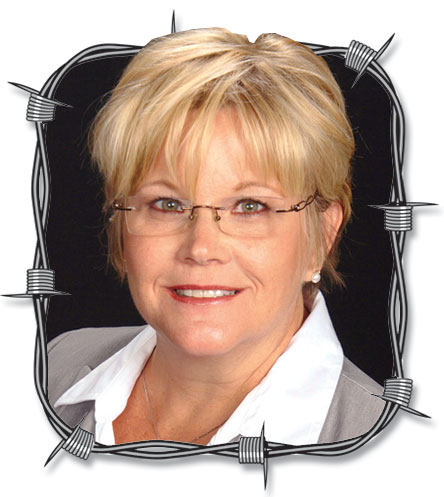There is always something to do on the farm – brush hogging this field, spraying thistle in that one, working the cattle, fixing the tractor or hauling the crop. Record keeping gets pushed to the back burner. It can be time consuming, using a precious commodity none of us desire to waste. However, it is becoming an ever more necessary part of our operations.
Tedious as they can be, records can save and make a producer just as much, if not more, than any other job on the farm. Three of the more important reasons to keep good records are: expenses, production and your banker.
Controlling and tracking one’s expenses is usually the first place to begin increasing profit, especially in today’s environment of ever rising input costs. A good start would be to take an inventory of seemingly small inputs. How many of us go to the farm store for more fence clips rather than taking the time to find those leftover from last time we fixed the fence? Some times of the year require more cash than others. Tracking expenses from year to year can help identify patterns in cash needs.
Now that you’ve identified when cash flow is tight, how can you find relief during those times? Some of us use a credit card to get through those periods until the next calf check comes in. Consider talking to your banker about a revolving operating loan; your savings in interest alone can be considerable. Does your real estate or machinery note payment come due during those tight periods? Ask your loan officer about refinancing or rescheduling your payment to come due when you sell calves.
In marketing livestock today, keeping track of one’s production history is becoming almost mandatory. The cost of a good brood cow or heifer requires that she perform at optimum. The same applies to feeder calves, as many found during the drought last year. Keeping a record of which cows produce the best calves assists in culling, purchasing and retention decisions. Sometimes it’s the worst looking cow that produces the heaviest calf, and the show heifer’s calf cost rather than made you money. Which bull sired the most productive calves? Which producer sold you the best feeder calves? What pasture gave the most hay or produced the heavier calves?
Having a production record can be an immense advantage not only when marketing your calves, but also when discussing expansion needs with your loan officer. It not only indicates your expertise and dedication to your operation, but, for the loan officer, it can be a great confidence booster in you as a successful and committed customer.
Jessica Bailey is a Credit Analyst in the Agricultural Loan Division at Arvest Bank in Neosho, MO and was recently awarded the 2013 Crowder College Aggie Club Outstanding Agriculture Alumni Award.






